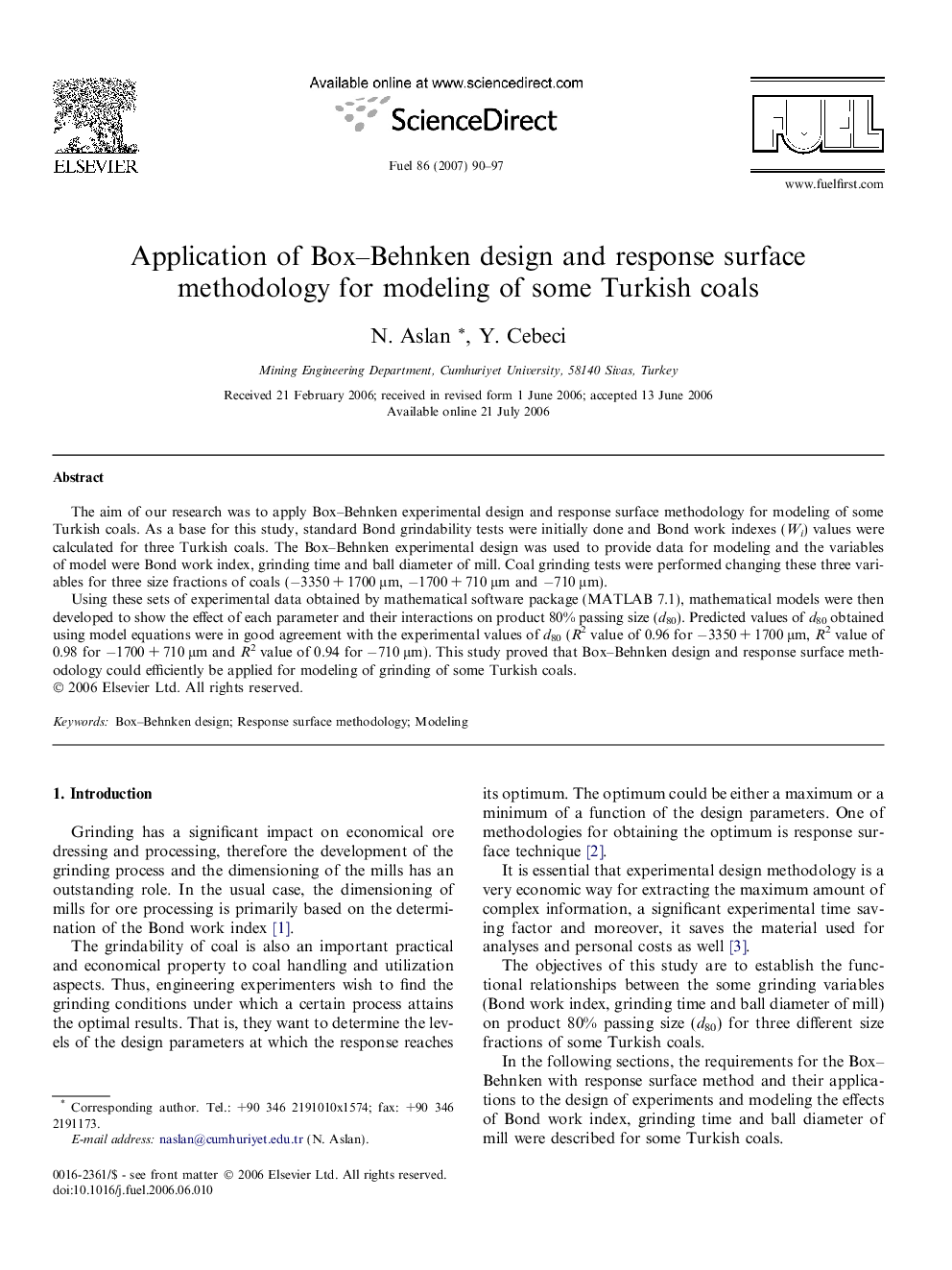| Article ID | Journal | Published Year | Pages | File Type |
|---|---|---|---|---|
| 208274 | Fuel | 2007 | 8 Pages |
The aim of our research was to apply Box–Behnken experimental design and response surface methodology for modeling of some Turkish coals. As a base for this study, standard Bond grindability tests were initially done and Bond work indexes (Wi) values were calculated for three Turkish coals. The Box–Behnken experimental design was used to provide data for modeling and the variables of model were Bond work index, grinding time and ball diameter of mill. Coal grinding tests were performed changing these three variables for three size fractions of coals (−3350 + 1700 μm, −1700 + 710 μm and −710 μm).Using these sets of experimental data obtained by mathematical software package (MATLAB 7.1), mathematical models were then developed to show the effect of each parameter and their interactions on product 80% passing size (d80). Predicted values of d80 obtained using model equations were in good agreement with the experimental values of d80 (R2 value of 0.96 for −3350 + 1700 μm, R2 value of 0.98 for −1700 + 710 μm and R2 value of 0.94 for −710 μm). This study proved that Box–Behnken design and response surface methodology could efficiently be applied for modeling of grinding of some Turkish coals.
